Xbox deserves more JRPGs
There is serious work to be done.
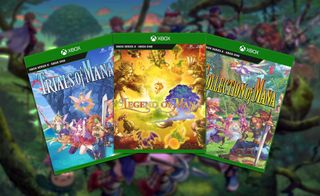
In recent years there's been an unfortunate trend permeating the Xbox platform. Many noteworthy JRPGs aren't bothering with Xbox One or Xbox Series X|S releases. While in some cases, such as Final Fantasy VII Remake, we can point to exclusivity deals as the root cause for exclusions. However, there are plenty of other instances like Legend of Mana Remastered, where a host of Japanese games are simply coming to every platform possible (including mobile) except for Xbox. As someone who grew up playing transformative JRPGs like Final Fantasy Tactics on PS1 but primarily plays on Xbox nowadays, this is consistently disappointing.
For some, the easy solution is merely to turn to PlayStation or Nintendo for their JRPG fixes. Unfortunately, this isn't a reasonable answer to the problem for players who've invested heavily in the Xbox ecosystem or don't have the financial resources to run out and buy another console. More Japanese developers and publishers need to see Xbox as a viable platform for their releases, and Xbox needs to correct its genre shortcomings if it genuinely wants to be "the best place to play." Xbox fans deserve to play the games they want, where they want, and JRPGs shouldn't be skipping Xbox consoles.
Xbox's history with Japan
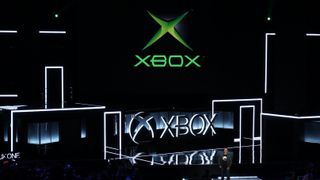
It's no secret that Xbox has historically struggled to carve out a meaningful foothold for the platform in Japan. Many critics can attribute this lack of success to the current shortcomings regarding the appeal of Xbox consoles for Japanese customers. But before we discuss the current state of Xbox, its areas of opportunity, and the possibilities for its future, it's essential to travel back to where it all began, the original Xbox launch.
When Xbox first hit the scene in late 2001 and early 2002, it was seen by many legacy video game enthusiasts as the cocky "new kid on the block." There was even the infamous meeting between Xbox and Nintendo ahead of the platform's release where Microsoft dared to present an acquisition proposal. While this development is hilarious in hindsight, it demonstrated that Xbox clearly saw value in Japanese developers and publishers. Despite this legendary rejection, the team at Microsoft worked diligently to earn the respect and support of Japanese audiences.
Following an impressive and surprisingly well-received launch, Xbox only continued to ensure a steady flow of compelling titles from third-party partners.
Skeptics jabbingly referred to the original Xbox as the "Halo-box in America and other English-speaking countries." This certainly wasn't an insult for players like myself who absolutely adored Halo: Combat Evolved. Still, it's important to note just how hard Xbox went to deliver compelling Japanese-developed exclusives for the platform. Fantastically received titles like Dead or Alive and Ninja Gaiden Black immediately solidified their worth for Eastern and Western players. Other breakout hits like Jet Set Radio Future further justified the Xbox's place in Japanese households.
Following an impressive and surprisingly well-received launch, Xbox only continued to ensure a steady flow of compelling titles from third-party partners. Before FromSoftware delivered breakout hits like Dark Souls, Bloodborne, and Elden Ring, they even worked on a handful of Xbox exclusives, including Otogi: Myth of Demons and Otogi 2: Immortal Warriors. At the time, I was much too young to understand the significance of these games and what this massive developer support meant for the Xbox platform, but it's safe to say the early efforts from the team at Xbox don't get the praise they deserve.
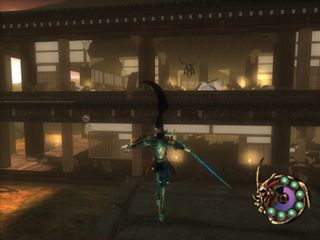
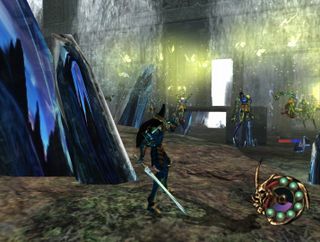
Source: Xbox
Get the Windows Central Newsletter
All the latest news, reviews, and guides for Windows and Xbox diehards.
The hard-fought momentum earned by Xbox with their first console only increased with the launch of the Xbox 360. Microsoft continued to leverage its growing relationships with Japanese studios to ship noteworthy exclusives like Blue Dragon, Lost Odyssey, Chromehounds, Dead or Alive 4, Enchanted Arms, Tenchu: Shadow Assault, and many more. This Japanese-centric expansion and community goodwill even led to historic releases like Final Fantasy 11 and 13 making their way to Xbox. As this was historically a PlayStation/Nintendo exclusive franchise, this was an exciting development for the platform.
The number of compelling Japanese-developed titles coming from Xbox and their Eastern partners took a nosedive heading into the launch of the Xbox One, and console sales and interest from players in those areas followed.
For a time, the future of Japanese-developed games on Xbox looked remarkably optimistic. Xbox earned a substantial increase in console sales over the previous generation, 1.6 million with the Xbox 360 compared to under 500,000 with the original Xbox. While still not entirely on the same level as its storied competitors, Nintendo and PlayStation, it seemed as though Xbox was positioned to close the gap in Japan. Unfortunately, following the tremendous commercial success of the Kinect and a dramatic shift towards Western-developed exclusives towards the tail end of the Xbox 360 cycle, that momentum was shattered.
The number of compelling Japanese-developed titles coming from Xbox and their Eastern partners took a nosedive heading into the launch of the Xbox One, and console sales and interest from players in those areas followed. Because of the Xbox 360's substantial install base, many noteworthy third-party releases still shipped on Xbox consoles, but the deeper we got into the Xbox One life cycle, the more apparent it became that Xbox wasn't doing enough to win over Japanese audiences or players who enjoy Japanese-developed games. Sadly, these continuous fumbles ultimately led Xbox to its worst generation ever in Japan, with only 114,000 consoles sold.
The current state of Japanese games on Xbox
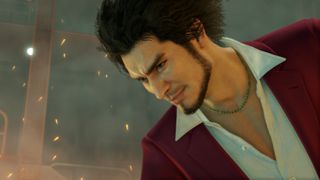
Reevaluating Xbox's history with Japanese-developed games helps provide better context for the current state of Eastern games, or lack thereof, on the platform. There is a direct correlation between Xbox's success and failure in Japan and the subsequent support and investments directed toward the region. What's particularly frustrating is that it isn't so much that "Xbox never did well in Japan," it's that they had tremendous potential to continue expanding and seemingly threw in the towel midway through the Xbox 360 generation.
We don't need to dwell on the host of specific missteps regarding this rollout because, at this point, it's been discussed ad nauseum, but in many respects, Xbox is still paying for the failings of the Xbox One launch. The company lost the goodwill of players, fans, and developers. Gamers who were satisfied with the undeniable success of the Xbox 360 quickly found themselves at a loss with the new direction of Xbox, which led many to focus their attention on PlayStation or Nintendo, especially for fans of Japanese games.
This ideological conflict introduces an unfortunate Catch-22 for Microsoft because they just can't grow their Japanese appeal without more Japanese games.
We're now in a situation where it seems as though developers and publishers aren't convinced their games will succeed on Xbox. Because of this, they allocate their time and resources towards bringing their titles to other platforms. Time and time again, we see critically acclaimed JRPGs like Persona, Ni no Kuni, and Final Fantasy entirely skip the Xbox. As I mentioned previously, exclusivity is the definitive reason in some cases. However, when I notice that some of my favorite games of all time, like Legend of Mana, are literally on every platform but Xbox, it's hard not to wonder what the conversations are behind the scenes.
Over the past several months, I've reached out to publishers like Square Enix, Level-5, Atlus, and more in hopes of getting insights into what specific factors ultimately dictate what platforms they bring their games to. Unsurprisingly, none of these teams were willing to provide official statements on the possibilities of additional platforms outside of, "We have nothing further to share at this time." I absolutely understand that there needs to be a business justification for bringing any game to new ecosystems. As much as I see community members declare the simplicity, it still takes time, money, and resources to port a game.
Xbox currently finds itself in a complicated predicament. On the one hand, the team has been working incredibly hard to partner with major Japanese developers and publishers to make Xbox an enticing platform. On the other hand, many worthwhile Japanese-developed titles seemingly have no plans for an Xbox version. As more and more games skip Xbox, it furthers the precedent or potential misconception that "Japanese games just don't do as well on Xbox." This ideological conflict introduces an unfortunate Catch-22 for Microsoft because they just can't grow their Japanese appeal without more Japanese games.
Hope for the future
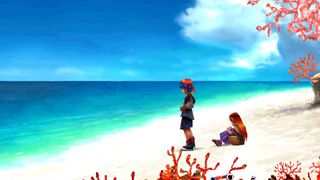
Despite a handful of setbacks and the monumental challenges in front of the company, I don't think the future of Japanese-developed games on Xbox is hopeless. Far from it, in fact. I sincerely believe Microsoft aims to make Xbox "the best place to play" and understands that this philosophy is more than just marketing buzzwords. To deliver on this mission, Xbox isn't allowed the opportunity to underserve an entire sub-genre. While it would be notably easier to lean aggressively into their Western talent and serve the customers who prefer it, I'm more excited to see Xbox rise to the task of making Xbox a legitimate force in all regions.
And while I'll always be the obnoxious dude on Twitter yelling about Legend of Mana not being on Xbox, we can't overstate the impressive lengths Xbox has employed to encourage players to engage with Japanese games on the platform. From bringing a considerable assortment of Final Fantasy and Yakuza titles to Xbox Game Pass to partnering with independent Japanese developers Rabbit and Bear studios to promote Eiyuden Chronicle: Hundred Heroes, Microsoft absolutely recognizes the importance of bringing captivating JRPGs to Xbox.
Extremely recent releases like Chrono Cross: The Radical Dreamers Edition also sprinkle a glimmer of optimism on the horizon. Re-experiencing this PS1-era JRPG on my Xbox Series X has been beautiful, weird, and admittedly a little surreal. I'd love for more Xbox fans to have opportunities to enjoy a genre that was so fundamental to my admiration for gaming. It will likely take a tremendous amount of work and time, but Xbox fans unconditionally deserve more JPRGs and Japanese-developed games on the platform.

The best deal in gaming!
With hundreds of awesome games and extra perks, Xbox Game Pass is hands-down the best deal in gaming right now.
Miles Dompier is a Freelance Video Producer for Windows Central, focusing on video content for Windows Central Gaming. In addition to writing or producing news, reviews, and gaming guides, Miles delivers fun, community-focused videos for the Windows Central Gaming YouTube channel. Miles also hosts Xbox Chaturdays every Saturday, which serves as the Windows Central Gaming weekly podcast.

